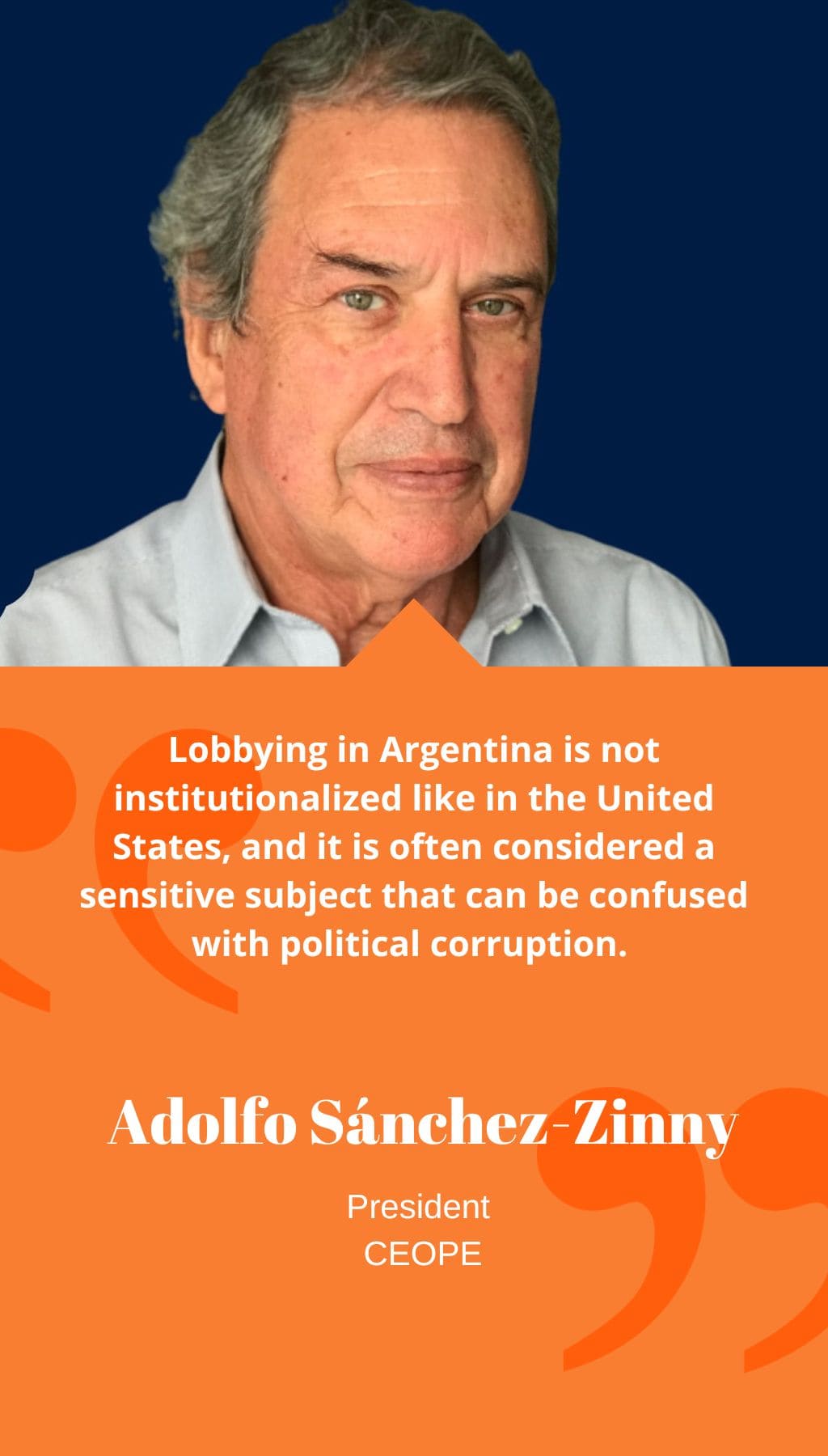
- Argentina | 30 April 2017

Can you discuss how the role of the CEOPE in the Argentinian oil and gas industry has evolved since its inception?
The Argentinian oil and gas industry is comprised of three main chambers, which are the Cámara de Empresas Productoras de Hidrocarburos representing local E&P companies, the Cámara de la Industria del Petróleo grouping international E&P companies, and the Cámara de Empresas de Operaciones Petroleras Especiales (CEOPE) representing OFS companies. While there is also the Unión Industrial Argentina confederation that groups chambers from several industries, the power dynamics within this confederation are complex and constantly changing.
How does the oil and gas industry lobby the government in Argentina?
Lobbying in Argentina is not institutionalized like in the United States, and it is often considered a sensitive subject that can be confused with political corruption. Unions also represent a challenge for companies in dealing with workers’ needs, and some labor relation experts suggest that companies can compete with the influence of unions by addressing worker needs before unions do. However, companies in Argentina, including OFS companies, have ignored issues important to workers like public health and health insurance. While unions have addressed these issues, Argentine companies are now trying to take ownership of these and other issues affecting the lives of workers. Nevertheless, OFS companies do invest significantly in time and resources to train workers and make security improvements. Some OFS companies have also made a special effort to get closer to their personnel and have been able to loosen the grip of unions over personnel, especially among young workers that represent 40% of the staff in Argentine companies.
What should an international OFS company know before entering the oil and gas industry in Argentina?
Some of the largest international OFS companies are already operating in Argentina. If foreign companies come to the country, Argentines should constitute a significant portion of the management team, especially in the human resources area since locals are familiar with Argentine idiosyncrasies related to conflict resolution and local business culture. International investors are interested in Argentina because of its reserves, but it is crucial to understand competitiveness for attracting investments as well. Understanding the country’s dynamics takes time, and the CEOPE is concerned about helping and informing all these companies about the context.
How would the industry react if oil prices do not rise beyond 70 dollars?
Most of the problems would be solved by considering competitiveness as a resource to face low prices. Companies without federal subsidization currently have to deal with many problems on their own, and there are laws created to protect the industry, but the fact is independent companies have to protect themselves. Competitiveness and efficiency are being more deeply considered. In the past, many companies entered the O&G industry without knowing how to do things right, and it is always a risk that has to be considered. The Argentinian industry is very vast, but even so, there is a lack of self-sufficiency due to bad political decisions and the presence and influence of certain companies at the time. Today, 80% of the potential hydrocarbon zones are not explored yet, and a lot of talent and technology will be needed. Talent is fundamental for competitiveness, and it is an international issue today. The main goal for Argentina has to be finding its own model.














